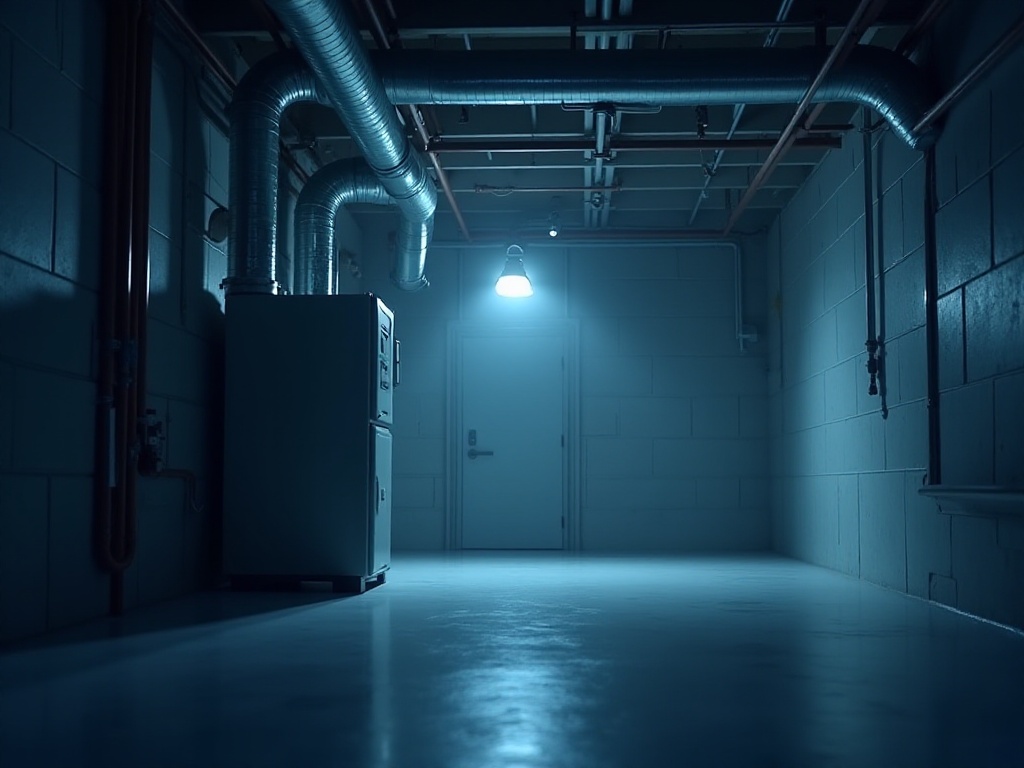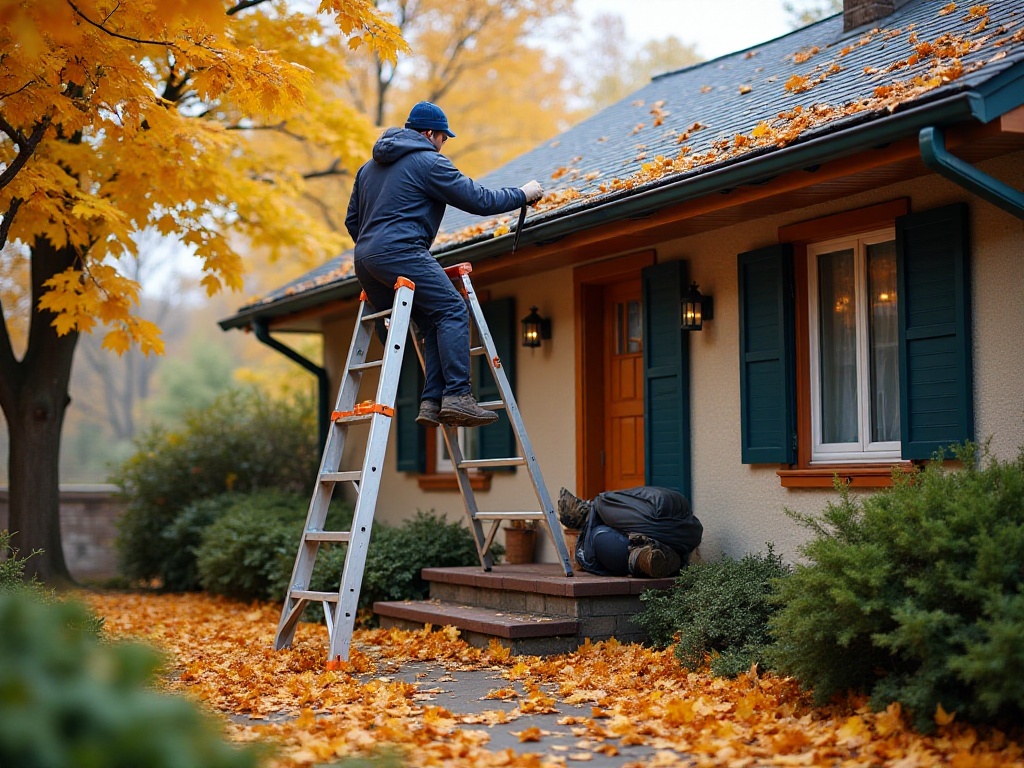Introduction
To be honest, I also found house maintenance very troublesome at first, but after years of practice, I've deeply realized the importance of preventive maintenance. When I first moved into my new house, I was completely clueless about maintaining various facilities until I met an experienced property management technician who taught me many practical maintenance skills hands-on. Today, I'd like to share all the experience I've accumulated over these years, helping you become a qualified "house doctor" too.
Daily Basics
Daily maintenance isn't as complicated as you might imagine. I now dedicate one afternoon every weekend specifically for house maintenance. Take vacuuming rooms for example - while it sounds simple, there are quite a few techniques to master.
I used to often overlook certain blind spots, like the top of curtain boxes, gaps behind TV stands, and corners under the bed. Until one time when cleaning my room, I discovered a thick layer of dust on top of the curtains - when I touched it, I was completely shocked. Since then, I've made it a rule to pay special attention to these usually invisible spots during each cleaning session.
While cleaning, I also pay particular attention to furniture surfaces. I've noticed that if dust accumulates for long periods, it not only looks terrible but also makes furniture surfaces appear dull. Now I use a special duster to carefully wipe each piece of furniture from top to bottom. For wooden furniture especially, I use special care oil for wiping, which not only removes dust but also nourishes the wood, making furniture look like new.
Speaking of carpets, they're truly troublesome. They look great when first purchased, but before long, various indentations appear, especially where heavy objects have been placed. I tried many methods before, like using a hair dryer or brushing with a comb, but none worked very well. Later, I discovered a particularly magical method - using ice cubes.
Here's how it works: place a few ice cubes on the indentation and leave them alone, letting them melt naturally. After the carpet absorbs the water, the fibers will naturally expand, and the indentation slowly disappears. The first time I tried this method, I was worried about getting the carpet wet, but I found that the moisture gets absorbed quickly with no dampness issues.
Another particularly useful tip is to regularly rotate the carpet. Because carpet wear is uneven, frequently walked-on areas will show age faster. Regular rotation allows for more even wear, thus extending the carpet's lifespan. I now give my carpet a "big flip" every three months, and it works exceptionally well.
Indoor air quality is also a crucial part of daily maintenance. Besides regular ventilation by opening windows, I also pay attention to the condition of the air conditioner filter. When I first moved in, I didn't know about regularly cleaning the air conditioner filter, resulting in the unit blowing out dust after only a short time of use. Later I learned that the air conditioner filter needs to be cleaned at least monthly, especially during spring and fall when there's more dust, it might need more frequent cleaning.

Kitchen and Bathroom Territory
Maintaining kitchens and bathrooms isn't particularly difficult, but it's not exactly simple either - the key is having patience and attention to detail. These two areas have the highest daily usage frequency, so naturally, they're most prone to problems. I've now developed a complete maintenance routine that I follow weekly.
Let's start with the kitchen. The garbage disposal is a particularly easily overlooked device - many people might think it's just a grinder, and running some water through it is enough. Actually, it needs regular maintenance too. I clean it monthly with crushed ice and baking soda. The specific method is to first pour in crushed ice, then sprinkle some baking soda, and run the disposal for a while. This not only removes grease stuck to the blades but also maintains their sharpness.
Range hood cleaning is also a skilled task. I used to wait until the range hood was particularly dirty before thinking about cleaning it, which made each cleaning session extremely difficult. Later I changed my strategy, now spraying the hood's exterior surface and filter weekly with a special grease cleaner, preventing grease from accumulating. For stubborn grease, I soak it in hot water with dish soap for a while, then gently scrub with a soft brush - this effectively removes grease without damaging the hood's surface.
Cabinet and countertop maintenance is also important. My cabinets are wooden, and to prevent moisture deformation, I regularly check for leaks, especially around pipe connections under the sink. I also regularly treat the cabinet surfaces with special wood furniture care oil, which not only prevents wood cracking but keeps the cabinets looking new.
For countertops, if they're marble, never use acidic cleaners as they'll corrode the stone surface. I now use neutral cleaners and always wipe dry immediately after use to avoid water marks on the surface.
As for bathrooms, the biggest issue is moisture, which can easily lead to mold growth if not handled properly. I've developed a habit of opening windows or turning on the exhaust fan after each shower to quickly dry the bathroom. I also wipe shower glass and tile grout with a dry towel to reduce water mark accumulation.
Toilet maintenance is also crucial. Besides regular cleaning, I periodically check if the tank's seal is intact and if flushing is smooth. If I notice the flush becoming weaker, it likely means there's an issue with the tank components - at this point, it's best to have professionals check and repair promptly to avoid bigger losses.
The sink drain pipes also need regular clearing. I treat them monthly with a special drain cleaner to prevent clogs. However, note that different pipe materials require different types of cleaners - always read the instructions carefully before use.

Safety First
When it comes to home safety, it's absolutely crucial. I remember last year hearing about a family in the neighboring complex who didn't replace their smoke detector batteries in time - they didn't discover a kitchen fire until it was too late, resulting in significant damage. So now I'm particularly attentive to home safety equipment.
Smoke detectors and carbon monoxide detectors are the most basic safety devices. I now test them monthly by pressing the test button to ensure they're working properly. If you hear a "beep-beep" warning sound, it means the battery is low and needs immediate replacement. This simple action might seem minor but could save lives in critical moments.
Besides alarms, the home electrical system also needs regular inspection. I watch for signs of outlets overheating or blackening, and check for wire aging. If problems are found, always have professional electricians handle them - never try to fix these things yourself.
The security system is also a crucial part of safety protection. Door and window locks need regular checking to ensure smooth operation without looseness. If lock issues are found, it's best to replace them promptly as this concerns the whole family's safety.
Gas safety is another concern. I have a gas leak detector installed and have professionals check the gas pipes quarterly to ensure there's no aging or leakage. When using gas, I also pay special attention to the flame color - if it turns yellow or becomes unstable, there might be an issue with the gas equipment requiring immediate attention.

Seasonal Care
Each season has its specific maintenance focus. I've now developed a seasonal maintenance plan that's both efficient and effective.
Spring is ideal for deep cleaning. After being closed up all winter, furniture and walls need thorough cleaning. I pay special attention to checking walls for mold, treating any found spots promptly with special mold remover. Window seals also need checking for cracks from winter's temperature fluctuations.
Summer focuses on moisture and mold prevention. I place several dehumidifier boxes indoors, especially in enclosed spaces like closets. With frequent air conditioner use, regular filter cleaning is essential - this ensures air quality and saves on electricity bills.
Fall is about winter preparation. I check door and window seals, repairing or replacing as needed. Radiators need checking for leaks, and heating pipes might need air bleeding.
Winter's priority is freeze prevention. Last year, my neighbor suffered significant damage from burst pipes due to inadequate freeze protection. So every winter, I focus on several aspects: first, wrapping outdoor pipes with insulation cotton, and second, keeping faucets slightly running during extremely cold weather to prevent pipe freezing.
Heating system maintenance is also important. Before each heating season, I check radiators for leaks and whether they need air bleeding. If radiators have cold spots, it likely means air bubbles inside requiring prompt bleeding.
Home maintenance can be both complex and simple. The key is developing good habits, regular checking, and prompt handling. Through years of practice, I've deeply realized that spending a little time and effort on maintenance not only saves repair costs but keeps the home in optimal condition. I hope these experiences help everyone become qualified "house doctors."








